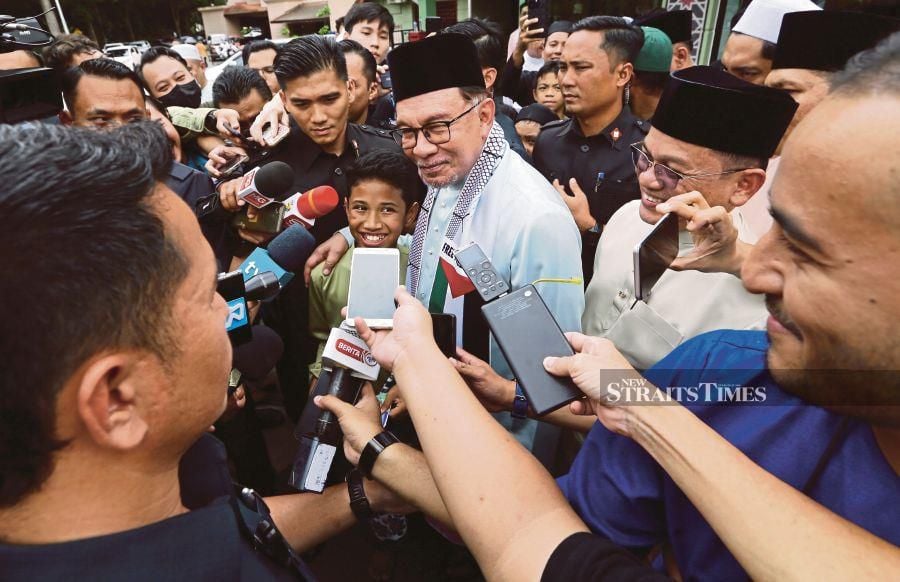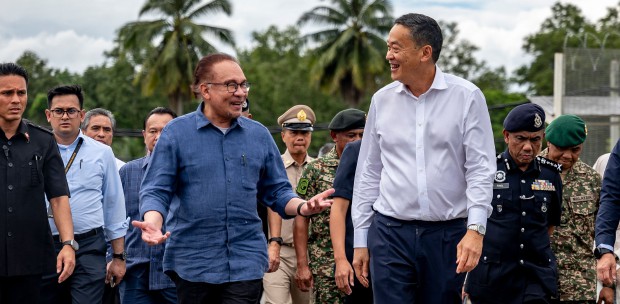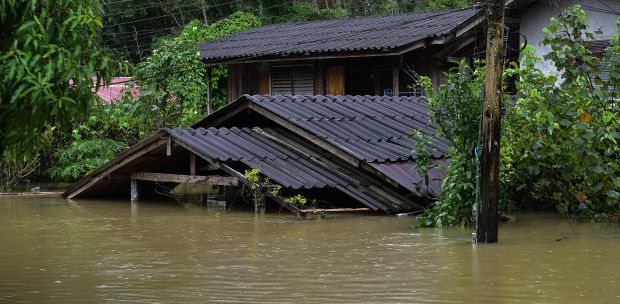BANGKOK: Malaysian Prime Minister Datuk Seri Anwar Ibrahim is not a stranger among the Islamic community, especially in Southern Thailand, where the local population here has high hopes for Anwar to help resolve conflicts and bring about peace in the area.
According to Prince of Songkla University Associate Professor Dr. Ibrahim Narongraksakhet, Anwar has a deeper understanding of the problems and conflicts (in Southern Thailand).
"The local population has high expectations that he can help establish peace in Southern Thailand and, at the same time, enhance development, trade, and the economy in the northern part of the Peninsula and the four regions of Southern Thailand," he told Bernama when asked about his views on the one-year anniversary of Anwar's Madani government in Malaysia.
In addition, Ibrahim said the meeting between Anwar and his Thai counterpart, Srettha Thavisin, in Sadao, Songkhla, recently was a positive sign to strengthen the bilateral relations between Malaysia and Thailand.
"This is the third time the two leaders have met. It signifies that both prime ministers are committed to enhancing bilateral cooperation and Malaysia-Thailand connectivity projects, especially at the border," he said.
Anwar and Srettha, who has held the position of Prime Minister since September of this year, have held three meetings, including Srettha's official visit to Malaysia on October 11 and 12.
The current geopolitical climate, according to Assistant Professor Dr. Chaiwat Meesanthan, Director of the East Asian Studies Institute at Thammasat University, Rangsit Campus, presents Anwar with significant challenges in leading the Madani government.
He cited the Palestine-Israel dispute, the Russia-Ukraine crisis, and global economic uncertainty as some of the factors influencing economic growth worldwide, including Malaysia.
"People want Anwar's government to develop the country's economy and reduce the cost of living. However, the Madani government faces the difficult task of addressing the country's economic issues due to global market challenges," he told Bernama.
After a year under Anwar's leadership, Chaiwat said Malaysia is now clearly more stable.
However, he said Anwar is seen as more cautious in implementing policies in his first year as prime minister.
"He faces fierce challenges compared to previous prime ministers because he has to appease all political parties in his coalition during the policy implementation to ensure political stability.
"Each political party in the coalition has different policies and ideologies. Therefore, Anwar is more cautious to ensure the coalition remains strong," he said.
"Anwar is not a stranger among the leaders in Southern Thailand. He is a leader who understands the situation in Southern Thailand the most. However, for now, he has to focus on Malaysia rather than foreign issues such as in Southern Thailand," said Chaiwat. — Bernama





